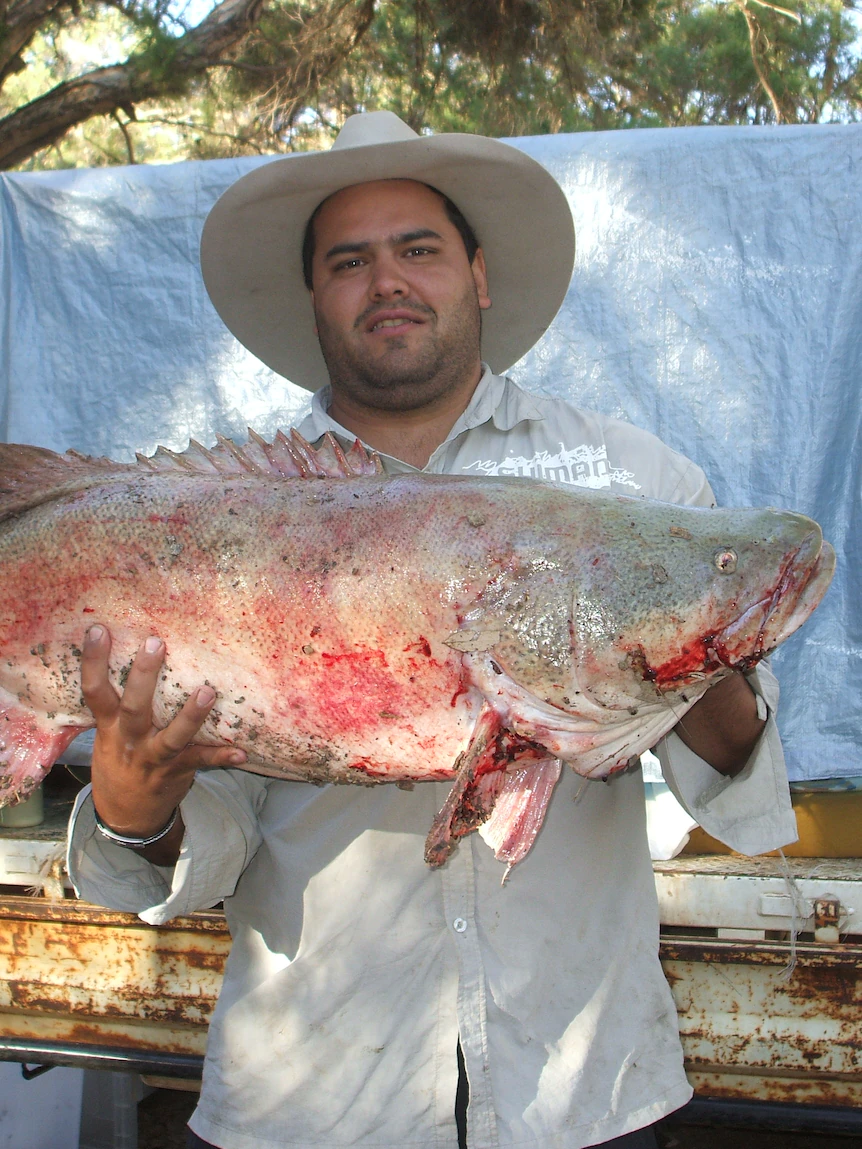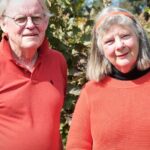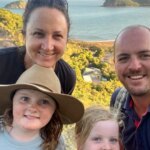A casual meeting around a bar in outback Queensland in 1991 saw the Charleville Fishing and Restocking Club form.
Drinks were had and glasses clinked in the town, a 10-hour drive west of Brisbane.
Move on 30 years.
The club has since let swim nearly 700,000 yellowbelly and just over 50,000 Murray cod fingerlings into the Warrego and Ward rivers.
The benefits have been many: for the river, animals in and out of the water, the environment, and for those that like to fish.
Mick Ward, president of the Charleville Fishing Restocking Club, said the idea to restock the waterways began as a way to replace the fish taken out and to help the rivers which were a fishing playground for many locals.
“Monthly cake stalls, we have a food van and do catering jobs, rent out our grounds at the fishing club for events and have a shearing team that donates their day’s work to our fingerling account.”
Fingerlings fight for survival
Fish restocking is not a new science.
Paul Webb, a project officer at Southern Queensland Landscapes works with land managers and organisations such as the Charleville club to ensure waterways are sustained.
“Healthy rivers, lakes, wetlands are all essential for the survival of our waterways, and the important fish restocking done by the Charleville Fishing Restocking Club contributes immensely,” Dr Webb said.
“I’ve been on the riverbank with multi-generations out there fishing in Charleville and seeing that cross-generation interest and enjoyment with our nature is what it’s all about for healthy waterways moving forward.”
Restocking is not always successful: the fingerlings need an appropriate habitat with good water quality at a suitable temperature, food, and the chance not to be eaten themselves.
Rivers formed during the Dreamtime
The catchment of both the Warrego and Ward rivers start east in the Carnarvon Range and consist of more than 300,000 hectares of wetlands, magnificent waterholes and lakes.
Both rivers form the northern-most tributaries of the upper Murray-Darling Basin, Australia’s largest, and are one of the only places silver perch breed naturally.
The Warrego River runs right past Charleville’s back door, while the Ward river is a further 20 kilometres west.
The Warrego, meaning river of sand, has significant importance to the Bidjara people, the traditional owners of the land.
Dreamtime stories tell of the Mundagudda, the Rainbow Serpent, who started the long journey in the Carnarvon ranges moving through the landscape and forming the waterways.
The river changes with environment fluctuations.
Massive rises in river levels were seen in floods, such as in 2009 when almost the whole town of Charleville was evacuated.
Droughts see the rivers become a mere series of waterholes where the fish struggle as hard as those on land to survive.
It’s a landscape where droughts and flooding rains come and go, as poet Dorothea MacKellar so aptly put it.
Dr Webb says that while every river system is important, the Warrego is a unique system and an important part of the health of the Basin.
“It is largely unregulated with limited diversions so that makes it a near-natural flow,” he said.
Anglers lured by $10,000 Murray cod
Fishing competitions and events held by the club, lure anglers from around the country, year in, year out.
The annual Carp Busters aims to decrease the number of carp, an aquatic pest introduced about 100 years ago that is renowned for its environmental degradation below the water.
A $10,000 tagged Murray cod is the big bonus at the Smith Family Cod Classic, held every Easter.
Other events dot the club’s annual calendar from camp oven cooking to junior fishing competitions.





